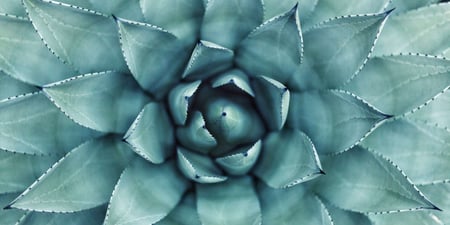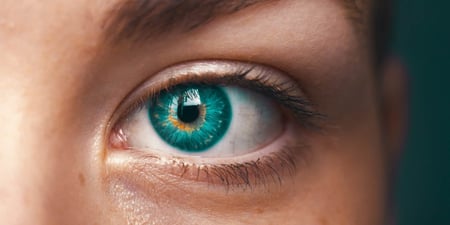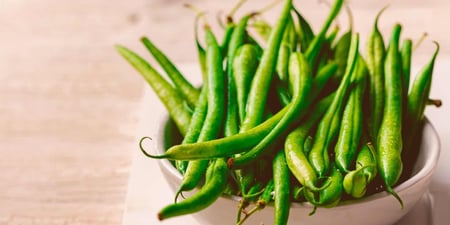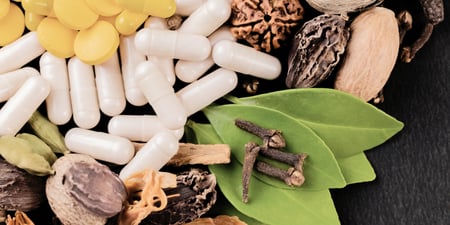Natural Medicine
How can natural medicine nourish you?
Natural medicine is a collection of modalities with a common theme that with the right support, and by restoring a natural balance, the body has remarkable abilities to heal itself.[1] Depending on their specialty, practitioners of natural medicine may offer advice on nutrition, recommendations about lifestyle factors, or treatments intended to harmonise body, mind and spirit,[2] or regulate the flow of qi (vital energy)[3] through the body.
As its name suggests, the remedies and supplements used in natural medicine are derived from plants, minerals and sometimes animal products, but do not normally include synthetically manufactured drugs. Treatments such as acupuncture[4] and wet cupping[5] are minimally invasive and performed with sterile, single-use items. However, they do not require anaesthetic, and natural medicine does not involve surgical procedures.
Benefits of natural medicine
The benefits of natural medicine are as varied as the modalities themselves. Acupuncture has been extensively studied, with the results of a meta-analysis suggesting that it may be more effective in the treatment of chronic pain[6] than a placebo treatment. A scoping study completed by Southern Cross University[7] offers evidence that naturopathy may provide benefits for a range of chronic health problems, ranging from asthma and cardiovascular issues to menopausal symptoms.
Dietitians are qualified to prescribe “medical nutrition therapy”[8] which may improve outcomes for a range of health problems, including chronic kidney disease.[9] There is evidence to indicate an extract found in traditional Indian remedies (Withania somnifera) may slow the development of breast cancer.[10] Research suggests St John’s Wort, a popular Western medicinal herb, may be as effective as pharmaceutical drugs for treating major depression,[11] but with less side effects.
What to expect from a natural medicine session
Even though natural medicine spans a wide variety of traditions and cultures, a central commonality is that your practitioner will make a detailed evaluation of your health[12] from a holistic perspective. With modalities such as traditional Chinese medicine, and associated treatments including acupuncture and cupping, the practitioner may use diagnostic techniques such as looking at your tongue and feeling your pulse.[13]
The treatment for a specific health concern may range from acupuncture or cupping, to the prescription of a herbal or homeopathic remedy.[14] You might be given advice on what you should eat (or avoid eating)[15] in order to restore your health, or prescribed nutritional supplements intended to stimulate your immune system.[16]
As with any exercise or wellness program, please consult your medical professional before commencing natural medicine. If you have an injury or other health issue, or any concerns at all, also speak to your natural medicine practitioner, who will be happy to address these and explore the option of customising the treatment to your individual requirements.
References
1. Is the body designed to heal itself? Temecula Center; 2019.
2. Ayurvedic medicine. Cancer Council NSW; [cited on 2024 Dec 6].
3. A Beginner’s Guide to Traditional Chinese Medicine. VeryWellHealth; 2024.
4. Acupuncture. Healthdirect; [cited on 2024 Dec 6].
5. Cupping Therapy Adelaide. City Acupuncture Adelaide; [cited on 2024 Dec 6].
6. Vickers AJ, Cronin AM, Maschino AC, Lewith G, MacPherson H, Foster NE, et al. Acupuncture for chronic pain. Archives of Internal Medicine; 2012.
7. King S. World-first scoping study shows benefits in naturopathic medicine treatments. Southern Cross University; 2019.
8. What Is Medical Nutrition Therapy? All You Need to Know Healthline; 2020.
9. Beto JA, Ramirez WE, Bansal VK. Medical Nutrition Therapy in Adults with Chronic Kidney Disease: Integrating Evidence and Consensus into Practice for the Generalist Registered Dietitian Nutritionist. Journal of the Academy of Nutrition and Dietetics; 2014.
10. Stan SD, Zeng Y, Singh SV. Ayurvedic medicine constituent withaferin A causes G2 and M phase cell cycle arrest in human breast cancer cells. Nutrition and Cancer; 2008.
11. Linde K, Berner MM, Kriston L. St John’s wort for major depression. Cochrane Library; 2008.
12. Testing. ReMed Natural Medicine Clinic; [cited on 2024 Dec 6].
13. How does a TCM practitioner make a diagnosis? University of Minnesota; [cited on 2024 Dec 6].
14. Homeopathy is a System of Natural Medicine based upon the Ancient Principle of like cures like. Classic Homeopath; 2022.
15. Health & Bloom. HealthBank; 2024.
16. Naturopathic Clinic. The Tonic Tree; 2019.






















